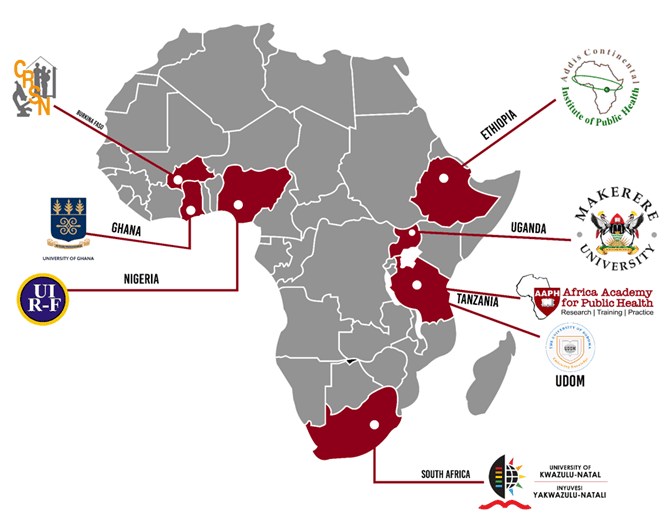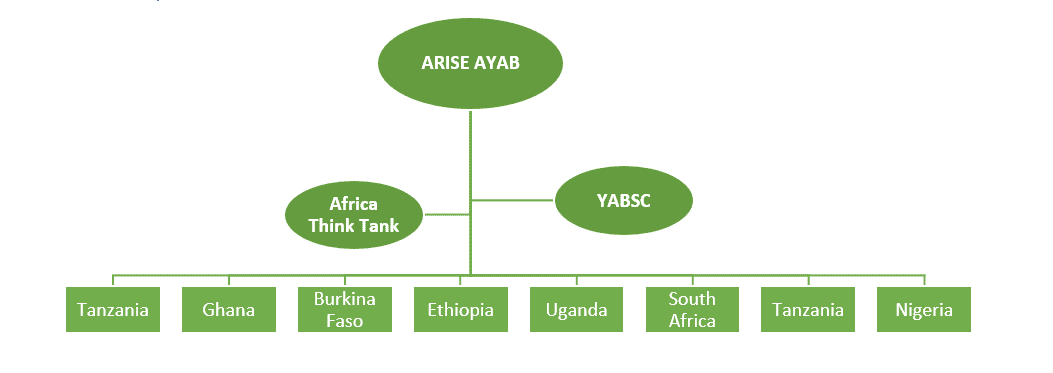DASH - AYAB


Establishment of the Adolescent Youth Advisory Board (AYAB)
Adolescent and youth are a unique demographic that has been increasingly recognized globally. The United Nations launched the Global Strategy for Women’s Children’s and Adolescent Health (2016-2023) in support of the 2030 Agenda for Sustainable Development and Global Accelerated Action for the Health of Adolescent 2017. The strategy focused on adolescent being pivotal in achieving the Sustainable Development Goals. Despite this, the voices of adolescents and young adults are marginalized, their perspectives overlooked in matters that directly affect their lives.
Through the Africa Research Implementation Science and Education (ARISE) Network, we recognize the inherent value of youth participation in decision-making processes. We understand that by actively involving adolescents and young adults in discussions and initiatives that concern them, we not only empower them to contribute meaningfully to society but also ensure that our research, programs and policies are relevant, inclusive, and responsive to their needs.
The formation of the Adolescent and Youth Advisory Board represents a step towards fostering a culture of youth engagement and empowerment within the ARISE Network. Comprising a diverse group of individuals between the ages of 18-22 years the AYAB will serve as a platform for young people to voice their opinions, share their experiences, and advocate for issues that matter most to them.
Overview of AYAB:
The ARISE Adolescent and Youth Advisory Board (ARISE AYAB) will comprise of adolescent and young adults from the African ARISE Network partner sites.

This advisory board will be guided by team of diverse experts in adolescent health which will form the Youth Advisory Board Steering Committee (YABSC). In addition to the steering committee coordinating the AYAB, members of the advisory board will receive mentorship from other experts in the network including the Think Tank.
Visual Depiction of AYAB Structure:

Roles and Responsibilities:
- Participation in ARISE-NUTRINT and DASH projects - Direct engagement with adolescents or other youth groups for information sharing and consultation purposes- AYAB members conduct engagements with other adolescents (school/ community level) to identify emerging issues in young people’s lives, through different engagement methods (focus group discussions, interviews etc.)
- Advocacy- the AYAB members together with the YABSC will identify opportunities to share the voice of adolescents and engage in ARISE Network advocacy events (in person and online) at local, national, regional or global levels. The adolescents will inform and prioritize the areas of advocacy they are most interested in. Adolescents will guide the development of the content of advocacy materials targeting adolescents, and contribute to disseminating key messages through webinars, social media and digital platforms etc.
Selection Criteria:
- Members of the AYAB will be selected through a competitive, inclusive, and transparent process organized by the Steering Committee (YABSC)
- At the time of applications, candidates must be aged 18-22 years, able to serve for two years, and possess a good command of the English language
- Individuals would ideally have background working with adolescents in the past (as part of an NGO, youth council, youth league, etc.)
- Equal opportunities to all genders
Meetings & Communication Channels:
- The AYAB and the YABSC will engage in regular communication virtual communication through e-mails, WhatsApp or another social media group.
- Quarterly meetings as well as ad-hoc meetings, by agreement between the AYAB and the YABSC/Think Tank.
- In person meetings of the AYAB will take place (provided available funding). Meeting dates and agenda items will be agreed between AYAB members and Steering Committee.
Ethical Considerations:
- For adolescents 18-24 years old, specific consent forms will be prepared and have their signed agreement prior to being involved in the process
- For all documents there will be included a note that the participation in this structure is voluntary and that they can withdraw at any time by providing a written rationale to the YABSC
- “Do no harm” and safeguarding principles will be highly considered in all processes that adolescents will be involved by creating safe spaces to engage in dialogue, advocacy etc.